
Michela Vecchi
Professor of Economics, Kingston University
Michela Vecchi is Professor of Economics at Kingston University. Her main areas of research are skills, productivity, technical change and wellbeing. Currently, she is working on an analysis of green skills for the net-zero transition in London, on the skill mismatch among UK graduates, and on the relation between dance, wellbeing and productivity in the workplace.
Michela is member of the Royal Economic Society, and she is the programme deputy chair for the 2024 Royal Economic Society Conference. Before joining Kingston, Michela worked at Middlesex University, the National Institute of Economic and Social Research (NIESR), Stirling University and Glasgow University. Michela has also worked in cooperation with the Centre for Enterprise and Economic Development Research (CEEDR) and the Office for National Statistics (ONS). She is visiting fellow at National Institute of Economic and Social Research (NIESR) and fellow of the Royal Society of Arts (RSA).
Less ![]()
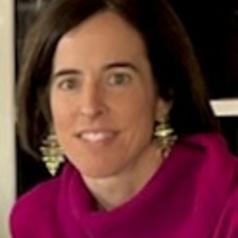
Michele Frank
Associate Professor of Accountancy, Miami University
Prior to obtaining my PhD at the University of Pittsburgh, I spent 11 years in public accounting. When I left practice, I was a senior manager in Ernst & Young's transaction tax advisory group. My research interests combine my work experience and my academic training. I am primarily interested in using psychological theory to better understand the judgment and decision making of auditors and tax professionals. My research examines how institutional and environmental factors may bias accounting professionals' judgments, and identifies interventions to mitigate these biases. I am currently an Assistant Professor at Miami University.
Less ![]()
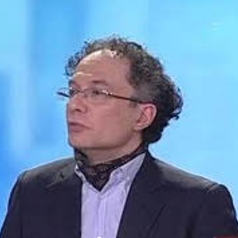
Michele Geraci
Michele Geraci is a managing director-level investment banker with vast international experience, having worked over the last 20 years in fund management, equity research, corporate finance, management consultancy, and as a telecom engineer across Europe, Latin America and Asia.
Michele regularly participates in conferences and forums. He has been invited twice to the “China Summit”, organised by The Economist, where he gave speeches on financial system reform and on China’s growing role in international affairs. He is a frequent guest on television news programmes (for example, CNN, CNBC, Bloomberg, CCTV, Al Jazeera) and is often quoted in the media. He is a regular contributor to China Daily and a columnist of Caixin Magazine, offering commentaries on financial and economic issues.
Less ![]()
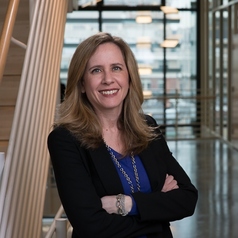
Michele Gilman
Michele Gilman is the Venable Professor of Law at the University of Baltimore School of Law. Professor Gilman directs the Civil Advocacy Clinic, where she supervises students representing low-income individuals and community groups in a wide range of litigation, legislation, and law reform matters. She also teaches evidence, federal administrative law, and poverty law. Professor Gilman writes extensively about social welfare issues, and her articles have appeared in journals including the California Law Review, the Vanderbilt Law Review, and the Brooklyn Law Review. In addition, she is a co-director of the Center on Applied Feminism, which works to apply the insights of feminist legal theory to legal practice and policy. Professor Gilman is the immediate past President of the Board of the Public Justice Center, a member of the Committee on Litigation and Legal Priorities of the ACLU of Maryland, a member of the Judicial Selection committee of the Women’s Law Center, and received the 2010 University of Maryland Board of Regents Award for Public Service. She received her B.A. from Duke University, and her J.D. from the University of Michigan Law School.
Less ![]()

Michele Madigan
Associate Professor, Optometry and Vision Science, UNSW Sydney and Clinical Associate Professor, Save Sight Institute, Clinical Ophthalmology, University of Sydney
Michele Madigan is a clinician researcher and education academic in the School of Optometry and Vision Science, UNSW Sydney, and the Save Sight Institute, Clinical Ophthalmology, University of Sydney. Michele is actively involved in teaching courses across areas including human eye anatomy and diseases, eye development and ageing. Michele is especially interested in irises and iris colour related to research about eye melanin, pigment cells (melanocytes) and eye melanoma.
Less ![]()
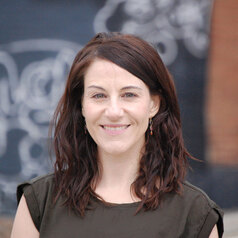
Michele Currie Navakas
Professor of English, Miami University
Michele Navakas is a literary scholar who specializes in American literature and culture to 1900 with an emphasis on the environment, race, geography, and material culture.
She is the author of two books: Liquid Landscape: Geography and Settlement at the Edge of Early America (University of Pennsylvania Press, 2018), and Coral Lives: Literature, Labor, and the Making of America (Princeton University Press, 2023).
Less ![]()
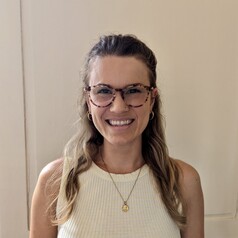
Michelle Aroney
Research Fellow in Early Modern History, University of Oxford
I am an early modern historian with research interests in the history of science, religion, and scholarship in Europe. I am currently a Fellow by Examination (Prize Fellow) at Magdalen College.
Research Interests
I am currently working on three projects. The first examines the history of the idea of the soul in early modern England, focusing particularly on the development of the heterodox view that humans did not possess immortal souls. The early modern debate over this issue was an interdisciplinary one: it involved religion, medicine, and natural philosophy, but also historical scholarship. Building on this work, I am also writing a ‘biography’ of William Warburton’s classic Divine Legation of Moses (1738-41), a book about the biblical Hebrews’ belief in immortality that despite being a highly technical work of scholarship became a public sensation in the mid-eighteenth century.
Another key interest is the history of astrology in the early modern world. I’m writing about the process by which astrology, once a vibrant aspect of cultural and intellectual life, came to be rejected as a superstition outside the bounds of science – a huge shift that remains a major puzzle in the history of science. My main interest is the contribution of late humanist scholarship to this shift and to ‘disenchantment’ more broadly. I'm also particularly interested in the evidence provided by student disputations in universities. In 2021, I organised (with Jan Machielsen and Robin Briggs) an interdisciplinary conference commemorating the 50th anniversary of Sir Keith Thomas’s Religion and the Decline of Magic (1971), which was supported by the Past & Present Society; recordings of the event can be found here. I’m also interested in the fact that the marginalization of astrology was a pan-European as well as a global phenomenon – in that it was also felt in European colonies around the world – and I am in the early stages of working on the marginalisation of astrology in New Spain.
I’m also interested in the history of epidemics. I have written about the role played by astrologers in early modern ‘public health’, and I recently curated an exhibition on the history of epidemics at Magdalen in the College’s Old Library, which ran from February to July 2023. The online version of the exhibition can be accessed here.
With the anthropologist David Zeitlyn, I am curating a major exhibition at the Bodleian Library on divination and astrology across the world and throughout history. More information here.
Less ![]()

Michelle Bentley
Having previously worked as a political journalist and a lobbyist at Westminster, Michelle joined Royal Holloway as Lecturer in International Relations in 2012. She has articles in prominent journals, including Security Studies and International Affairs, and has two books published: a sole-authored book analysing WMD and the strategic use of concepts, and an edited volume on the Obama administration and continuity in US foreign policy.
Less ![]()
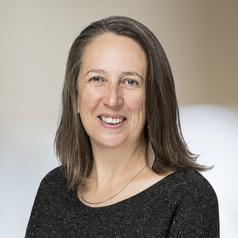
Michelle Boyle
Snow Medical Fellow & CSL Centenary Fellow, Burnet Institute
Dr Michelle Boyle is a Snow Medical Fellow & CSL Centenary Fellow at the Burnet Institute, Melbourne. Her research aims to understand how the immune response protects from malaria, and to use this knowledge to develop better vaccines for malaria. She is particularly interested in how chronic infections, like malaria, disrupts the immune response. The overall goal of her research is to develop her drugs to improve protection from malaria in children.
Less ![]()

Michelle Cameron
Senior Lecturer, Te Huataki Waiora School of Health, University of Waikato
Michelle Cameron is a Senior Lecturer and Registered Nurse in Health at Te Huataki Waiora School of Health, University of Waikato. Michelle completed her doctoral research in 2023 evaluating the Oranga Mahi REACH initiative and won a top achievers doctoral scholarship from the University of Auckland in order to complete the work. She has a first-class honours from the University of Auckland and a Bachelor of Nursing from Massey University.
Michelle's clinical and research interests focus on the broader aspects of health and wellbeing and initiatives to improve outcomes for vulnerable populations.
Less ![]()
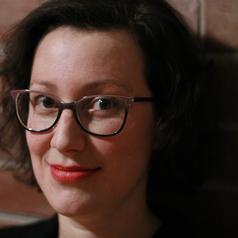
Michelle Cohen
Adjunct Assistant Professor, Department of Family Medicine, Queen's University, Ontario
Dr. Michelle Cohen is a family physician in rural southeastern Ontario. She has a comprehensive general practice at the Lakeview Family Health Team in Brighton and runs sexual health clinics in Brighton and Campbellford via the Haliburton, Kawartha, Pine Ridge District Health Unit. She is an assistant professor in the Department of Family Medicine at Queen's University where she works as a community preceptor for medical trainees to gain exposure to rural primary care. She has given talks on sexism in medicine, health care advocacy and caring for gender diverse patients, among other topics. She has published a pioneering academic paper on the gender pay gap in Canadian medicine and continues to research this issue. Outside of her clinical and academic work, Dr. Cohen is a freelance writer whose articles on health policy and health equity have been published in CBC, Maclean's, Toronto Star, Chatelaine, Healthy Debate, Medical Post and other outlets. She has led advocacy work with Canadian Women in Medicine and currently sits on the OMA Women Committee.
Less ![]()

Michelle Cowley-Cunningham
Chartered Psychologist and Postdoctoral Researcher at the National Centre for Family Business, Dublin City University
Dr Michelle Cowley-Cunningham CPsychol AFPsSI is a chartered and professions-led psychologist. She is a postdoctoral researcher at the National Centre for Family Business and co-investigator on the Family Business Succession Project. A Royal Statistical Society RSS Fellow and m-level accredited market researcher CMRS, she employs multidisciplinary insights to better inform psychological research. Michelle helped found, and serves as Secretary of, the Psychological Society of Ireland's Special Interest Group in Human Rights & Psychology. Her recent research and policy projects address how sustainable business values promote child and adolescent mental health in the climate crisis context (PSI UN submission, 2023).
Professional activities and research: An Irish Research Council scholar, Michelle completed her PhD in psychology at Trinity College Dublin. Her doctoral thesis was subject of a full article in Nature Publications News and published as a book 'Hypothesis testing: how we foresee falsification in competitive games'. After a year-long lectureship in applied psychology at the University of Southampton, she was awarded a Katzenbach Postdoctoral Fellowship at the Law Faculty University of Oxford to develop research on the psychology of foresight and its connection to human rights (with visiting scholarship to Princeton University, USA). Michelle has published in the leading journals Psychology, Crime & Law, the International Journal of Forensic Science & Criminal Investigation, Irish Studies in International Affairs and Clinical Psychology Forum. Applying psychology and market research to roles held in QS Top 100 universities, FTSE 100 Index, CNBC Top 200 fintech and Irish Times Top1000 companies, her project management is cited in leading international media including the IC Investment & Wealth Management Awards (2019, 2020), Financial Times (2016, 2019, 2020),The Times (2022), PolicyCommons and the NYU Stern NET Institute Series. Michelle has been an Ambassador Facilitator with the National Forum for the Enhancement of Teaching and Learning in Higher Education. She was a research lead on the SATLE funded Association of Higher Education Careers Services national award-winning Graduate Employability Superfoods Toolkit (2022), featuring in a Quality & Qualifications Ireland QQI Report (2022) and Government of Ireland Human Capital Virtual Labs HC1 P3 Initiative (2023). Michelle also serves on the Editorial Review Board of the Market Research Society's flagship journal International Journal of Market Research.
Less ![]()
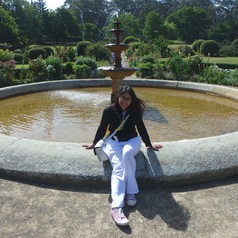
Michelle de Souza
Lecturer in Law, University of New England
Michelle joined UNE in 2010 and teaches Torts, Medical Law and Introduction to Legal Systems and Methods. Her research interests are medical law and medical ethics, with a focus on the beginning of life and assisted reproductive technology.
Michelle is completing a PhD (part-time) at the University of Sydney. Her thesis examines the regulation of pre-implantation genetic diagnosis in Australia and the UK. As part of her PhD, Michelle spent Fall term 2015 at Harvard Law School as a doctoral exchange student. In addition to advancing her own PhD research, Michelle participated in the Health Law Policy, Biotechnology and Bioethics workshop run by the Petrie Flom Centre.
Less ![]()
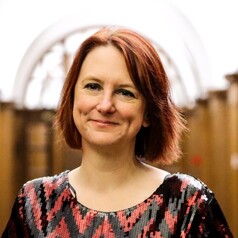
Michelle Deininger
Senior Co-ordinating Lecturer in Humanities, Cardiff University
I returned to education as a mature student, having completed part of my undergraduate studies at Oxford University’s Department for Continuing Education.
I undertook my AHRC funded PhD at Cardiff University, completing my thesis in the field of Welsh women’s short fiction in English.
I have worked in a range of educational settings, from widening access to a gifted and talented sixth form programme.
My higher education roles include Postgraduate Tutor for first year undergraduates at Cardiff University (2009-2013), University Teacher at Cardiff University’s Continuing and Professional Education (2014-17), Lecturer in English at Cardiff Metropolitan University (2014-15), and University Teacher in English Literature at Cardiff University’s School of English, Communication and Philosophy (2015-16).
I became Co-ordinating Lecturer in Humanities at Cardiff University in October 2017.
My research interests include the short story, women’s writing, feminist theory, ecocriticism, nineteenth-century newspapers, literary networks, literature and higher education, and widening access.
Less ![]()

Michelle Dewar
Doctorante en psychologie (Ph.D/D.ps), Université du Québec à Montréal (UQAM)
- Doctorante en psychologie clinique, D.ps et Ph.D. Université du Québec à Montréal
- Boursière Joseph-Armand Bombardier; Boursière FRQSC
- Spécialisée en traumatismes psychologiques, blessures morales, traitements d'approche cognitive-comportementale;
Less ![]()
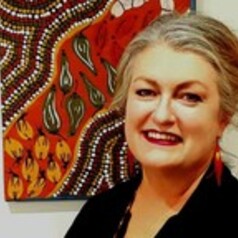
Michelle Dickson
Director, The Poche Centre for Indigenous Health Faculty of Medicine and Health, University of Sydney
Associate Professor Michelle Dickson is a Darkinjung/Ngarigo academic and Director of The Poche Centre for Indigenous Health, a research flagship centre in the Faculty of Medicine and Health, University of Sydney. She lives and works on Gadigal land (Sydney, New South Wales, Australia). A/Prof. Dickson has worked in Aboriginal and Torres Strait Islander health and wellbeing service delivery and health professions education for over 30 years. She was formerly Deputy Head of School and previous Academic Program Director of the Graduate Diploma in Indigenous Health Promotion. In 2021 the Public Health Association of Australia (PHAA) awarded her for contribution to Aboriginal and Torres Strait Islander Public Health. A/Prof. Dickson focuses on privileging Aboriginal and Torres Strait Islander ways of knowing, being and doing in education, research, health and wellness. Her research partnerships include First Nations researchers and communities nationally and internationally.
Less ![]()
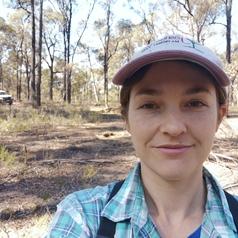
Michelle Gibson
Research Fellow, Bird Ecology and Fire Science, The University of Melbourne
I am a conservation ecologist interested in understanding ecological disturbances and how to manage resilient ecosystems into the future.
Less ![]()
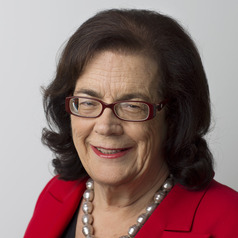
Michelle Grattan
Professorial Fellow, University of Canberra
Michelle Grattan AO is one of Australia's most respected and awarded political journalists. She has been a member of the Canberra parliamentary press gallery for more than 40 years, during which time she has covered all the most significant stories in Australian politics.
As a former editor of The Canberra Times, Michelle Grattan was also the first female editor of an Australian daily newspaper. She has been with the Australian Financial Review, The Sydney Morning Herald and Political Editor of The Age since 2004.
Michelle currently has a dual role with an academic position at the University of Canberra and as Associate Editor (Politics) and Chief Political Correspondent at The Conversation.
In her role at the University of Canberra, Michelle will be teaching, working on research projects in politics and political communication, as well as providing public commentary and strategic advice.
She is the author, co-author and editor of several books and was made an Officer of the Order of Australia (AO) in 2004 for her long and distinguished service to Australian journalism.
Less ![]()

Michelle Hamadache
Lecturer, Literature and Creative Writing, Macquarie University
Michelle has taught literature and creative writing at Macquarie University since 2008. She's had articles and writing published in both international (Parallax & Antipodes) and Australian journals (Southerly, Meanjin, Cordite and Island). She has worked as editor at the literary journals, Southerly and Mascara. Her area of expertise is Algerian politics and history and she travels regularly to Algeria. She also co-hosts the English Department's podcast, From the Lighthouse:https://www.fromthelighthouse.org/
Less ![]()

Michelle Hamrosi
Clinical lecturer, Rural Clinical School, Australian National University
I'm a Clinical Lecturer for ANU's Rural Clinical School on the South Coast of NSW as well as a General Practitioner and International Board Certified Lactation Consultant. I also work part in research through the Australian Breastfeeding Association - Community Protection for Infants and Young Children in Bushfires Project. https://www.breastfeeding.asn.au/protecting_infants_in_emergencies
Less ![]()

Michelle Jongenelis
Associate Professor Michelle Jongenelis has expertise in health promotion, intervention development and evaluation, behavioural psychology, and clinical psychology. She works across multiple and diverse health-related behaviours including alcohol and tobacco control, nutrition, physical activity, and sun protection. Michelle works as a researcher and consultant for a broad range of organisations covering the not-for-profit and government sectors. She is currently Deputy Director of the Melbourne Centre for Behaviour Change.
Less ![]()
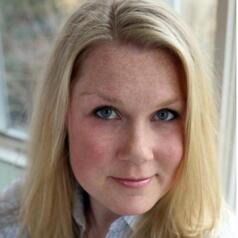
Michelle LaRue
Associate Professor in Conservation Biology, University of Canterbury
I focus on interdisciplinary tools, such as GIS and high-resolution satellite imagery, to study spatial and population dynamics of penguins, seals, & cougars - species facing substantial conservation challenges as both the physical and social environments change across the world.
Less ![]()
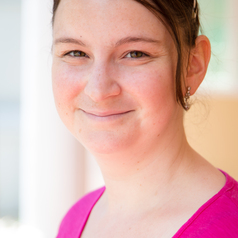
Michelle Lochner
Senior Lecturer in Astronomy, University of the Western Cape
Born in South Africa with a PhD from the University of Cape Town, Dr. Michelle Lochner is a Senior Lecturer with a joint position between the University of the Western Cape and the South African Radio Astronomy Observatory (formerly SKA South Africa). Her focus is on cosmology and trying to get the best out of combining optical and radio telescopes like the Vera C. Rubin Observatory, in Chile, as well as the Square Kilometre Array and its precursor, MeerKAT, in South Africa. She works on developing new statistical techniques and machine learning techniques to tackle the masses of data we are dealing with in astronomy, currently focusing on the use of anomaly detection for scientific discovery. She is also the founder and director of an international mentoring programme for women and gender minorities in physics called the Supernova Foundation.
Less ![]()
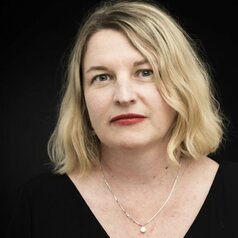
Michelle Newcomb
Lecturer, Queensland University of Technology
Michelle Newcomb was chosen as one of the ABC's top five ECR researchers in the humanities in 2022. She is a lecturer with the School of Public Health and Social Work at the Queensland University of Technology. Prior to this, she worked extensively in human services in both Australia and the United Kingdom. Michelle's research concerns burnout and attrition in the social care sector.
Less ![]()
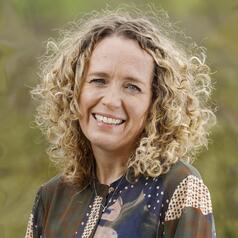
Michelle Rawlins
University Teacher, School of Journalism, Media and Communication, University of Sheffield
Michelle Rawlins is the MA Journalism Course Leader at the University of Sheffield. She joined the School of Journalism, Media & Communication in 2019.
In conjunction with Women's Aid & IDAS, she is currently carrying out research with funding support from the University of Sheffield about the portrayal of domestic abuse in media, and how journalism educators can equip trainee journalists with the skills to report on domestic abuse in an ethical, positive and impactful manner.
She is an award-winning journalist, author, ghostwriter and copywriter with over 25 years' experience working for national newspapers, magazines and online publications.
Less ![]()
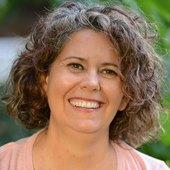
Michelle Riedlinger
Associate Professor in Digital Media, Queensland University of Technology
Less ![]()
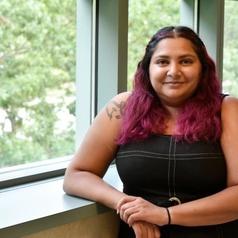
Michelle Rodrigues1
Assistant Professor, Marquette University
Assistant Professor in the Department of Social and Cultural Sciences at Marquette University.
Michelle A. Rodrigues is a biological anthropologist with research interests in the impact of sociality on stress biology, including the impact of human-primate interactions on primates across wild and captive contexts. She has worked primarily with Central American monkeys, as well as captive platyrrhines and apes. Her recent work has focused on applying decolonial approaches to improving the practice of primatology.
Less ![]()
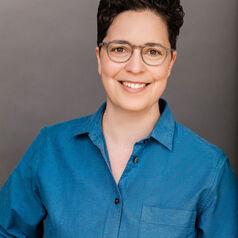
Michelle Schwartz
Librarian, Toronto Metropolitan University
Michelle Schwartz is a liaison librarian at Toronto Metropolitan University, supporting the journalism and media programs. She is the co-director of Lesbian and Gay Liberation in Canada (LGLC), a SSHRC-funded digital humanities research project that is building an interactive digital resource for the study of LGBTQ2+ history in Canada.
Less ![]()

Michelle Scoullar
Senior Research Fellow, Burnet Institute
Dr Scoullar is an international health specialist, General Paediatrician, and Senior Research Fellow at the Burnet Institute. She has extensive clinical and research experience across tertiary, community, rural and remote settings in Victoria, NSW, Queensland, Lao People’s Democratic Republic (PDR), Myanmar and Papua New Guinea (PNG). Dr Scoullar’s work is focused on issues of health equity and improving child health outcomes, and is passionate about patient centred, culturally sensitive, quality care that upholds patient voice and dignity. She leads paediatric component of a Long COVID specialist clinic, providing evidence-based care to children and adolescents with Long COVID.
Less ![]()

Michelle Smith
Michelle Smith is a Research Fellow in the School of Communication and Creative Arts at Deakin University and will take up an Alfred Deakin Postdoctoral Fellowship in mid-2015. In 2013, she completed a postdoctoral fellowship on the Australian Research Council Discovery project 'From Colonial to Modern: Transnational Girlhood in Australian, Canadian and New Zealand Print Cultures, 1840-1940'.
Michelle's research focuses on gender in Victorian literature and culture, as well as children’s literature. Her current project examines female beauty in Victorian print culture. She completed her doctoral dissertation on British girls' literature and empire at the University of Melbourne in 2007. It was published as Empire in British Girls' Literature and Culture: Imperial Girls, 1880-1915 by Palgrave Macmillan (UK) in 2011. It won the 2012 European Society for the Study of English's Book Award for best book by a junior scholar. She is also the editor (with Kristine Moruzi) of Girls' School Stories, 1749-1929 (Routledge, 2013) and the collection Colonial Girlhood in Literature, Culture and History, 1840-1940 (Palgrave Macmillan).
Her research has been published in journals including Women's Writing, Victorian Periodicals Review, English Literature in Transition, The Lion and the Unicorn, Continuum, Papers: Explorations into Children's Literature and in numerous edited collections.
Michelle has published opinion pieces in the Age, the Washington Post, New Statesman, and The Drum and has been interviewed on numerous radio and television programmes.
Less ![]()
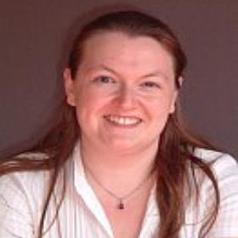
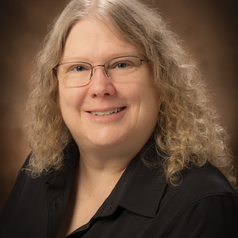
Michelle Szydlowski
Visiting Assistant Professor, Department of Biology, Project Dragonfly, Miami University
I am a university VAP, and continue to research human-pachyderm relationships globally. My focus is on Nepal and captive elephant-mahout-owner triads, along with wild elephants, wild and orphaned (hand-reared) rhinoceros, and how conservation practices are influenced by these human-pachyderm relationships. Likewise, I examine how I/NGOs influence conservation and tourism practices, especially those centered around marginalized multispecies communities. Other projects include elephant and mahout health and welfare, and one health/one welfare concerns.
Less ![]()
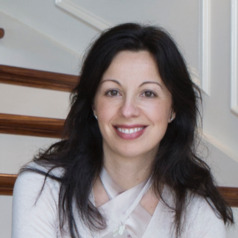
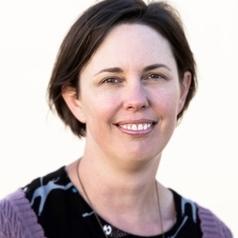
Michelle Voyer
Principal Research Fellow, University of Wollongong
Associate Professor Michelle Voyer is a Principal Research Fellow with the Australian National Centre for Ocean Resources and Security (ANCORS) and the inaugural Keira Endowed Chair in Energy Futures at the University of Wollongong. Building on a ten year career in Australian state and federal government, Michelle's research focuses primarily on the human dimensions of marine conservation and resource management, and the nexus of social science and policy. She investigates the governance challenges associated with the ‘Blue Economy’, with a particular focus on exploring opportunities for community and Indigenous input, engagement and codesign in emerging and established maritime industries.
Less ![]()
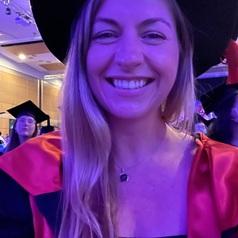
Michelle Ward2
Lecturer, School of Environment and Science, Griffith University
Currently Lecturer at Griffith University. Masters in Conservation Ecology from the University of Queensland. PhD from the University of Queensland supported by an Australian Research Council Scholarship (2021). Has published over 40 peer-reviewed scientific papers. Formerly the Science and Research Lead WWF-Australia.
Less ![]()
- Market Data





















